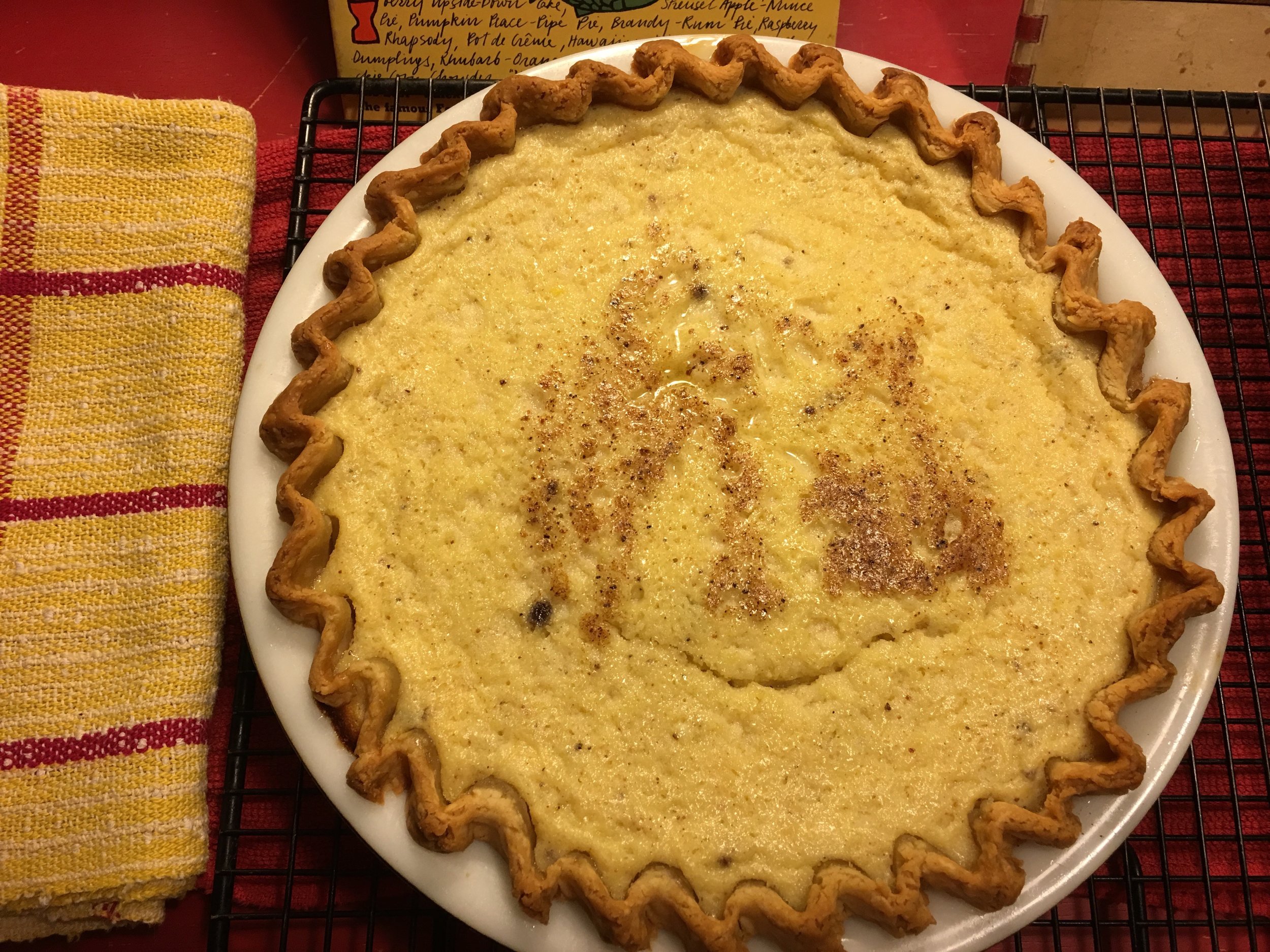Depression Era Pies
Recently, I baked a pie for neighbors who are feeling depressed over the current administration’s daily attacks on freedoms and civil rights Americans have long believed were guaranteed by our constitution. I’ve been feeling the same way and although the Fourth of July is traditionally a day of feasting on hot dogs, burgers, and sweet corn, what I needed was simple Depression-era comfort food.
That need gave me pause to reflect on the decade that followed the stock market crash on Oct. 29, 1929. According to Nick Taylor, author of American-Made, the Dow Jones Industrial Average fell almost 23 percent and the market lost between $8 billion and $9 billion in paper value on what came to be known as “Black Tuesday.”
During most of the 1920s, Taylor notes, farmers had already been caught in a depression caused by the collapse of food prices when export markets were lost after World War I. Years of drought and dust storms that reportedly darkened skies at noon and depleted the land of its topsoil followed. City dwellers and farmers alike lost their homes, possessions, employment and land.
Franklin Delano Roosevelt won the November 1932 presidential election by a landslide. Unemployment had reached 20 percent, thousands of banks and businesses had failed and millions were homeless. In his inaugural address four months later, he bolstered the spirits of Americans with these words— “the only thing we have to fear is fear itself.” By the end of the decade, Hitler and Japan were on the move and soon the world was at war once again.
My parents had their first date on December 7, 1941—the day the Japanese bombed Pearl Harbor. Dad was an instructor pilot in the Army Air Corps stationed in San Antonio, TX. I was born soon after the war ended in 1945. And while the stock market did not regain its pre-Depression levels until 1954, my sisters and I had not experienced deprivation or the Depression my parents and the country had lived through. The war was over and my father had returned safely from the Pacific Theater where he’d been a B-29 pilot. Stability and optimism made the America of my childhood seem a swell world in which to grow up.
Turning to my cookbook library and notebooks of recipes I’ve assembled over the years, I came across some heritage recipes for Chess Pie, Buttermilk Pie, Vinegar Pie, and Pickle Pie. What these recipes all have in common fits right into the social and economic uncertainty being experienced by so many Americans today. No frills, no nuts or exotic fruit. They were “j’es pie” (one of the possible origins of the name “chess” pie). Vinegar Pies go back even earlier to pioneers in Western Kansas living in sod houses. They were made in the winter when the supply of dried fruit in the larder was gone. Butter, sugar, flour, eggs, vinegar and a touch of nutmeg, cinnamon or cloves are the basic ingredients of these simply delicious pies. [From Cooks.com recipe search]
Vinegar Pie
3 tbsp. apple cider vinegar
1 egg
1 tsp. lemon extract
4 tbsp. flour
1 cup sugar
1 cup boiling water
1 baked pie shell
Directions:
Mix sugar and flour together. Add boiling water; cook 5 minutes.
Add beaten egg and cook two minutes longer.
Add lemon and vinegar.
Pour into pie shell, cool.
If you hanker for a pie when economic news is depressing and your larder is down to ‘j’es” the basics, reach for one of those jars of pickles that you put up last summer. Here’s a Pickle Pie recipe also available from Cooks.Com—For the crust: lard, flour, salt, an egg, water and vinegar. For the filling: corn starch, cinnamon, light cream, sweet pickles (ground), sugar, butter, nutmeg and lemon extract.
Terry Thompson, author of A Taste of the South, believes these pies have their origins in the South where the subject of desserts can turn quickly from an innocent comment overhead and expounded upon by another, then another, until a full-blown seminar is underway. “Overindulging in desserts,” Thompson concludes, “is one way of rewarding ourselves for surviving two Southern afflictions—the heat and mosquitoes.” “Southerners,” Thompson continues, “have always been able to produce enticing desserts from whatever is on hand—sometimes from virtually nothing.”
Though outwardly the economic outlook is bleak for millions, I continue to hang on to hope and will keep fighting for the democratic values my parents fought for and believed in. This Fourth of July, a depression-era pie might be just what’s needed to remind us of what was once both good and simple in life when times get truly tough.




